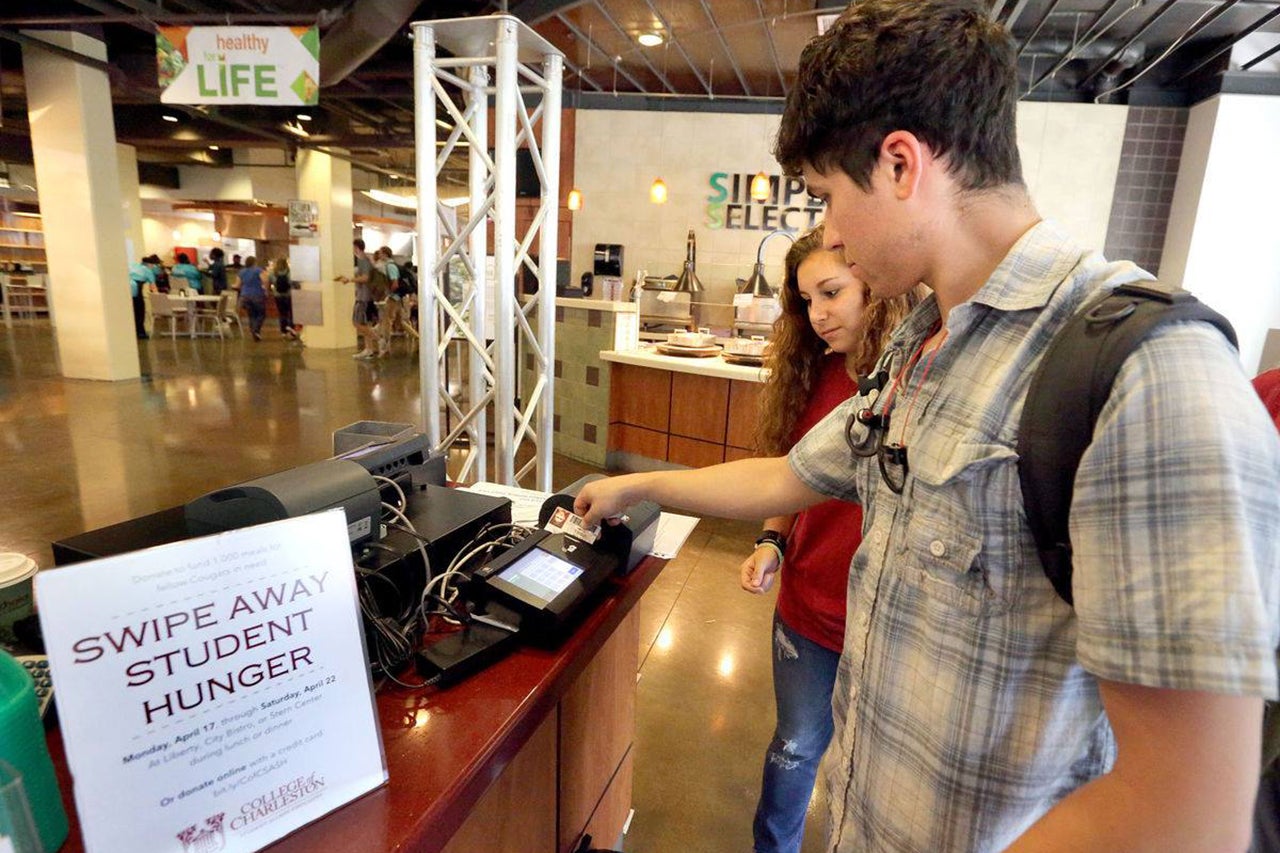Food insecurity is a growing problem facing college students across the country. But the success of the College’s fall 2017 Swipe Away Student Hunger campaign has helped close the gap for CofC students who may be worried about going without a meal.
A philanthropic effort run by the College’s Student Alumni Associates (SAA), Swipe Away Student Hunger first launched as a fundraiser in the fall of 2016 with the aim of assisting students in need by collecting monetary donations and unused Dining Dollars. With the addition of meal swipe donations this fall, the campaign grew exponentially by rerouting unused meals from student meal plans to students facing hunger issues.

Longtime dining services employee Judy Riser, affectionately known as “Miss Judy,” joined the fall 2017 Swipe Away Student Hunger campaign. (Photo by Leslie McKellar)
This fall’s campaign, which ran from Nov. 27 – Dec. 1, 2017, raised $7,490 in monetary donations from alumni, parents and students, $485.02 in donated Dining Dollars and 6,954 in donated meal swipes, which is equivalent to approximately $51,668.
Being able to redirect unused meal swipes, which expire at the end of each semester, was a huge boost to the Swipe Away Hunger campaign, says SAA President Olivia Talbott. And that’s important because, according to the Charleston Youth Count 2017 study conducted by the College’s Riley Center for Livable Communities, about 30 percent or between 1,687 and 3,375 students at CofC are food insecure and need help with nutrition.
“I think that’s the great thing about being able to use swipes and putting those toward the campaign because you’re able to help so many more students just by adding those in,” says Talbott.
Any students without access to adequate food can apply for food assistance through the Office of the Dean of Students. Alicia Caudill, executive vice president for the Division of Student Affairs, says students are assessed for eligibility to receive food assistance on a case-by-case basis.
“The students that benefit from this are wonderful students who have come up on something unexpected and this program allows us to eliminate a barrier within our control that helps students continue their education,” says Caudill.
This year, SAA partnered with longtime dining services employee Judy Riser, affectionately known as “Miss Judy,” to bring more awareness to the issue of student hunger. Riser, who has worked in CofC’s cafeterias since 1974, keeps cash on-hand during her shifts to assist students who might otherwise go without a meal.
“I think so many students take it for granted that they can afford a meal plan, but with Swipe Away Student Hunger, we’re able to bring that awareness to them,” says Talbott.
And it’s hard to study on an empty stomach, says SAA Treasurer Adezha Eison.
“You can’t do well in school, you can’t perform well in school if you’re hungry,” says Eison, noting that for students who work to make ends meet, something as simple as evacuating for a hurricane and missing a few days of work can suddenly cause them to go without food. “Something seemingly so small can make a big impact.”




